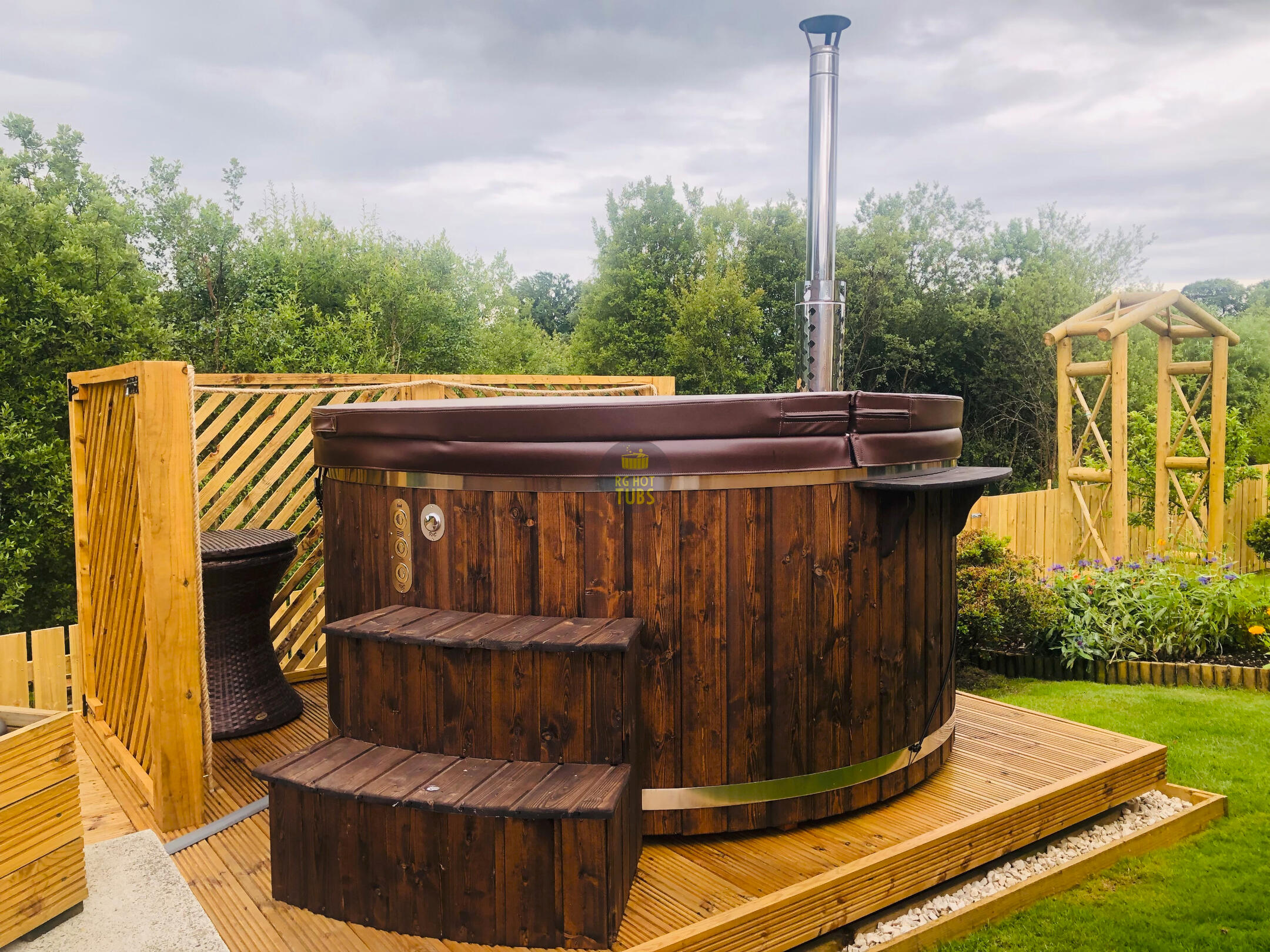In the quest for sustainable and efficient heating solutions, the choice of fuel plays a vital role. While various options exist, hardwood kiln-dried logs have emerged as a popular choice for their numerous benefits.
In this article, we will explore the advantages of kiln-dried hardwood logs as a fuel source, their impact on energy efficiency, and how they contribute to sustainable heating solutions.
Read More Blogs: https://thehealthyliving.co.uk/unwind-naturally-the-benefits-of-wood-fired-hot-tubs/

The Rise of Sustainable Heating Solutions
The need for sustainable heating
As the world grapples with climate change and environmental concerns, the demand for sustainable heating solutions is on the rise. Traditional fossil fuel-based heating methods contribute significantly to greenhouse gas emissions. Therefore, there is a growing focus on renewable energy sources and sustainable practices to reduce carbon footprints.
Exploring wood fuels
Wood fuels, such as firewood and briquettes, have long been used for heating purposes. They offer a renewable and carbon-neutral energy source when harvested responsibly. However, not all wood fuels are created equal. Kiln-dried hardwood logs have gained popularity due to their enhanced efficiency and sustainability.
Understanding Kiln-Dried Hardwood Logs
The kiln-drying process
Kiln-drying is a specialized method that reduces the moisture content of freshly cut wood. The logs are placed in a controlled environment, typically a kiln, where temperature, humidity, and airflow are carefully regulated. This process accelerates the drying time, ensuring that the wood reaches an optimal moisture level for efficient burning.
Benefits of kiln-dried hardwood logs
Enhanced energy efficiency: Kiln-dried logs have significantly lower moisture content compared to air-dried or freshly cut wood. This results in improved combustion efficiency, as less energy is wasted on evaporating moisture, allowing for a greater heat output.
Longer burning duration: The reduced moisture content in kiln-dried logs increases their energy density, enabling them to burn for longer periods. This means fewer refueling intervals, improved convenience, and reduced energy consumption.
Energy Efficiency and Kiln-Dried Hardwood Logs
Heat output and performance
Kiln-dried hardwood logs provide a concentrated heat output, making them highly efficient for heating purposes. The lower moisture content allows for a consistent and intense flame, generating a greater amount of heat that can warm up spaces effectively.
Sustainable fuel source
Carbon neutrality: Wood is considered a renewable resource, as the carbon dioxide released during combustion is offset by the carbon absorbed during the tree’s growth. Kiln-dried hardwood logs contribute to a sustainable heating solution by minimizing carbon emissions.
Responsible sourcing: Choosing kiln-dried logs from certified suppliers ensures that the wood is sourced from sustainably managed forests. This practice promotes the responsible use of natural resources and supports the conservation of forests.
Also Read BBC news for New timber drying facility ‘would benefit Borders’
Environmental Benefits of Kiln-Dried Hardwood Logs
Reduced carbon emissions
Kiln-dried hardwood logs offer a cleaner-burning alternative to fossil fuels, significantly reducing carbon emissions. By utilizing this sustainable fuel source, homeowners can actively contribute to mitigating climate change and reducing their carbon footprint.
Air quality improvement
Reduced smoke and pollutants: Kiln-dried logs produce minimal smoke and fewer pollutants during combustion, leading to improved indoor and outdoor air quality. This is particularly beneficial for individuals with respiratory conditions or sensitivities.
Efficient combustion: The controlled moisture content in kiln-dried logs ensures complete combustion, resulting in fewer harmful emissions such as particulate matter and volatile organic compounds (VOCs).
Choosing the Right Fuel:
Quality assurance
When selecting kiln-dried hardwood logs, it is important to source them from reputable suppliers who adhere to strict quality standards. Look for certifications or labels that ensure the wood has been properly kiln-dried and is of high quality.
Storage and handling
To maintain the quality and energy efficiency of kiln-dried logs, proper storage and handling are essential. Store them in a dry and well-ventilated area, protected from rain or excessive moisture. This ensures that the logs retain their optimal moisture content and burn efficiently.
Conclusion:
As we navigate the transition towards sustainable energy practices, the use of kiln-dried hardwood logs provides an effective and environmentally friendly heating solution. Their lower moisture content leads to enhanced energy efficiency, longer burning duration, and reduced carbon emissions. By choosing kiln-dried logs sourced from responsibly managed forests, we can contribute to the preservation of our natural resources and create a healthier environment. Embrace the power of kiln-dried hardwood logs and embark on a journey towards sustainable and efficient heating solutions.

Nancy Bonney is a health blogger and the founder of her own blog about fitness. She has been blogging for three years now and loves to share what she learns with others. Nancy enjoys reading, cooking, and staying active outdoors.











